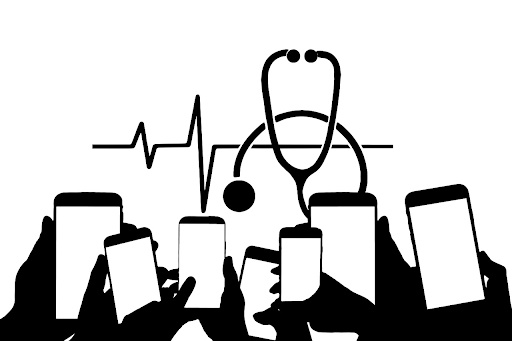Access to healthcare remains a critical challenge globally, particularly in underserved and remote communities. With the advent of mobile health clinics, there's an evolving landscape in healthcare delivery aimed at reaching populations traditionally marginalized from standard healthcare systems. This article delves into the concept of mobile health clinics, their significance, challenges they face, and future prospects.
The Concept of Mobile Health Clinics
Mobile health clinics are custom-designed vehicles equipped with medical equipment and staffed by healthcare professionals. They travel to various locations, providing medical services directly to communities. These clinics offer a range of services, from primary care to specialized treatments like dental care, mental health services, and health education. The mobility factor allows these clinics to transcend geographical barriers, making healthcare accessible to rural areas, urban underserved populations, and disaster-stricken zones.
Addressing Healthcare Disparities
Reaching Underserved Communities
One of the primary roles of mobile health clinics is to serve communities that are geographically isolated or socioeconomically disadvantaged. They provide a critical link for individuals who might otherwise forgo medical care due to distance, cost, or lack of transportation.
Culturally Competent Care
Mobile clinics often serve diverse populations. Thus, they emphasize culturally competent care, ensuring that staff are sensitive to the cultural, linguistic, and social needs of the communities they serve. This approach helps in building trust and improving patient outcomes.
Services Offered by Mobile Health Clinics
Mobile health clinics are not just about providing basic healthcare. They offer a range of services, including:
Preventive Care: Immunizations, health screenings, and early detection of diseases.
Chronic Disease Management: Regular check-ups and management for conditions like diabetes and hypertension.
Mental Health Services: Counseling, therapy, and psychiatric services.
Maternal and Child Health: Prenatal care, pediatric check-ups, and vaccinations.
Health Education: Educating communities about nutrition, hygiene, and disease prevention.
The Role of Technology in Mobile Health Clinics
Technology plays a vital role in the operation of mobile health clinics. Electronic health records (EHRs) enable staff to maintain accurate patient records and coordinate care. Telemedicine capabilities allow for remote consultations with specialists, expanding the range of services offered. Digital health tools, like mobile applications and wearable devices, can also enhance patient engagement and self-management of health.
Challenges Faced by Mobile Health Clinics
While mobile health clinics are a boon in many ways, they face several challenges:
Funding and Sustainability: Operating mobile clinics is expensive, and consistent funding is crucial for their sustainability.
Regulatory Hurdles: Navigating the complex healthcare regulations and obtaining the necessary licenses can be challenging.
Weather and Geographical Limitations: Adverse weather and difficult terrain can limit the reach of mobile clinics.
Staffing: Recruiting and retaining skilled healthcare professionals who are willing to work in a mobile setting.
The Impact of Mobile Health Clinics
Studies have shown that mobile health clinics significantly improve health outcomes in the communities they serve. They reduce emergency room visits, lower healthcare costs, and increase patient satisfaction. By providing continuous and preventive care, they also contribute to the overall improvement of public health.
Future Prospects and Innovations
The future of mobile health clinics looks promising, with potential for expansion and innovation. Possible advancements include:
Integration with Local Healthcare Systems: Creating a seamless connection between mobile clinics and local hospitals or health centers.
Expansion of Telehealth Services: Leveraging telehealth to provide more specialized care.
Solar-Powered Clinics: Utilizing renewable energy sources to power clinics, making them more environmentally sustainable.
Community Partnerships: Collaborating with local organizations and businesses for funding and support.
Conclusion
In the dynamic landscape of healthcare technology, Holon Solutions stands out as a beacon of innovation and human-centric focus. Their unique approach, deeply inspired by the concept of a "holon," symbolizes the balance between being an independent entity and a vital part of a larger system. This philosophy is not just a guiding principle but is vividly reflected in their commitment to enhancing human connections in healthcare through the use of advanced technology.
The sophisticated platform developed by Holon transcends conventional healthcare technology offerings. It creates a seamless and intuitive space that streamlines healthcare processes with tailored tools designed to simplify complex procedures. What sets Holon apart is their proprietary sensor technology, which aggregates patient data from diverse sources, integrating it effortlessly into individualized clinical workflows. This strategic automation not only conserves time for medical professionals but also directly combats the prevalent issue of professional burnout. By doing so, Holon enables healthcare providers to refocus on what truly matters: delivering superior patient care.
Holon's distinctive edge in the competitive healthcare technology landscape lies in their relentless efforts to mitigate the overwhelming administrative tasks that burden healthcare professionals. They harness the power of smart technology and intuitive design to introduce customized tools, services, and insights that are dual-focused. They not only demonstrate tangible business returns but also underscore the profound impact these tools have on human interactions and outcomes in the healthcare sector.
A pivotal aspect of Holon's approach is the Holon Community, which is specifically designed to optimize healthcare processes. This community streamlines the delivery of patient data from numerous sources to any point of care, integrating effortlessly with existing infrastructures and procedures. This not only enhances professional fulfillment but also dedicates more time to patient-centric care, a core value of Holon's mission.
Innovation is not just a buzzword at Holon; it is woven into the very fabric of their ethos. This is prominently displayed in their Innovation Lab, where teams are empowered to explore limitlessly. Here, technology and intuitive design are leveraged to emphasize the human aspect of healthcare services. Holon's foundational principles guide this exploration, promoting bold thinking, simplification, customer empathy, agile responses in a Software as a Service (SaaS) environment, and the humanization of every interaction. This mindset fosters the development of revolutionary solutions, mirroring Holon's drive to initiate transformative changes in the healthcare industry.
The relentless pursuit of Holon to innovate healthcare experiences is a testament to their dedication to addressing critical issues such as professional burnout, reducing administrative strain, and enriching the quality of patient care. Holon is steadfast in their vision of bringing a more humane touch to healthcare innovation, standing as a vanguard in the quest to revive the human element in healthcare services. Their commitment to this vision is not only admirable but is also a beacon of hope in a field that is ever-evolving and increasingly in need of a balance between technological advancement and human connection.


No comments yet